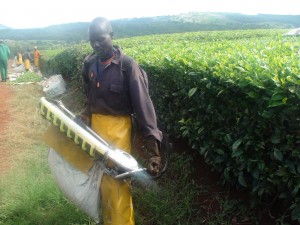This is the first in a series of posts about the increasing prevalence of large-scale land acquisition, or “land grabs” in Sub-Saharan Africa.
Background: There has been a documented trend in recent years of foreign governments and private firms investing and acquiring large tracts of land in other countries for the purpose of agricultural production and export. While the trend is global, increasingly the countries where these deals are taking place are in largely under or undeveloped regions in Asia and Africa.
According to the International Food Policy Research Institute (IFPRI), cited in a 2009 article in The Economist, 37-49 million acres of farmland were the subject of deals or proposed deals involving foreigners, between 2006 and mid-2009 alone.
- The seminal report published by Spanish NGO GRAIN: Seized! The 2008 land grab for food and financial security, highlighted 100 cases of both government and private companies in food-importing countries like China, Japan, Qatar and Saudi Arabia making large deals for farms or otherwise non-cultivated land in countries like Ethiopia, Sudan, Uganda and Zimbabwe. GRAIN has since kept an online archive, updated daily, of hundreds of articles from around the world reporting any such deal.
- The Oakland Institute subsequently published two reports: The Great Land Grab: Rush for World’s Farmland Threatens Food Security for the Poor and, a few months ago, (Mis)Investment in Agriculture: The Role of the International Finance Corporation In Global Land Grabs.
- Investigating the research on some of the suggested “win-win” approaches, the International Institute for Environment and Development just published Making the Most of Agricultural Investment: a survey of business models that provide opportunities for small-holders.
- Finally, the World Bank itself has been promising to release its own report on more than 389 deals in 80 countries – the largest such report to date – but has delayed publication already three times in the last six months. GRAIN believes the delay is due to unfavorable findings.
- The seminal report published by Spanish NGO GRAIN: Seized! The 2008 land grab for food and financial security, highlighted 100 cases of both government and private companies in food-importing countries like China, Japan, Qatar and Saudi Arabia making large deals for farms or otherwise non-cultivated land in countries like Ethiopia, Sudan, Uganda and Zimbabwe. GRAIN has since kept an online archive, updated daily, of hundreds of articles from around the world reporting any such deal.
- The Oakland Institute subsequently published two reports: The Great Land Grab: Rush for World’s Farmland Threatens Food Security for the Poor and, a few months ago, (Mis)Investment in Agriculture: The Role of the International Finance Corporation In Global Land Grabs.
- Investigating the research on some of the suggested “win-win” approaches, the International Institute for Environment and Development just published Making the Most of Agricultural Investment: a survey of business models that provide opportunities for small-holders.
- Finally, the World Bank itself has been promising to release its own report on more than 389 deals in 80 countries – the largest such report to date – but has delayed publication already three times in the last six months. GRAIN believes the delay is due to unfavorable findings.

Bernard Pollack, an expert on local labor movements and communications, is currently traveling across the continent of Africa with his partner Danielle Nierenberg BorderJumpers.org, meeting with farmers, community organizers, labor activists/leaders, non-governmental organization (NGOs), the funding and donor communities, and others.
His travel writing from Africa has recently been featured in the Montreal Gazette, the NC News Observer, the Omaha World-Herald, and the Des Moines Register.
He holds an M.A. in Political Management from The George Washington University School of Political Management and a B.A. from the Elliot School of International Affairs at George Washington University.









